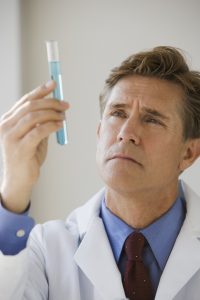 What are the governing bodies for compounding pharmacies? Do compounding pharmacies follow the same legal rules as drug manufacturing companies? These are some of the pertinent questions a patient should ask.
What are the governing bodies for compounding pharmacies? Do compounding pharmacies follow the same legal rules as drug manufacturing companies? These are some of the pertinent questions a patient should ask.
American Integrative Pharmacy (AIP), led by Dr. Neema Yazdanpanah, provides compounding pharmacy treatments to patients in Long Beach, Torrance, Los Angeles, South Bay Orange County, Southern California areas, and nationwide.
Regulatory Framework
The state board of pharmacy regulates the practice of compounding. If community and hospital compounding pharmacists comply with the regulations outlined in Section 503A, they are allowed exemptions to the Federal Food, Drug, and Cosmetic Act of 1938.
The federal and state authorities oversee all pharmacists and pharmacies engaged in compounding.
It is necessary for pharmacists engaged in compounding to follow applicable standards and regulations for the types of preparations that are compounded.
The FDA oversees the integrity and safety of drugs (known as Active Pharmaceutical Ingredients, or APIs, by FDA) used in compounded preparations.
The Drug Enforcement Administration (DEA) oversees any controlled substances that are used in the preparation of compounded drugs. Controlled substances include narcotics such as hydrocodone, amphetamines, and similar medications as well as drugs such as those used for sleep disorders and anxiety.
USP Standards
Additionally, the United States Pharmacopeial (USP) Convention issues standards that are applicable to compounding. This is a private, non-profit organization that defined the chemical purity of medications as well as lays down practice standards.
USP creates standards for the quality, strength, identity, and purity of medications, dietary supplements, and food ingredients that may be used in compounding preparations. These standards are specifically relevant to compounding pharmacists.
USP General Chapter <797> refers to the national standard for the processing, testing, and verification of any compound in sterile preparations.
It offers guidance on preventing microbial contamination and other variations in compound sterile medications, irrespective of the setting (for instance, community pharmacies, hospitals, etc.) or who is doing the compounding (nurses, pharmacists, pharmacy technicians, or others).
USP General Chapter <795> lays down similar guidance for non-sterile preparations that are compounded in health care facilities. It elaborates on the categories of compounding (simple, moderate, complex), provides the definition of concepts such as stability and beyond-use date, and offers criteria for compounding pharmacists to follow when developing various drug preparations.
USP General Chapter <800> refers to a new standard developed by USP. This standard determines practice and quality standards of hazardous drugs to minimize the exposure to hazardous drugs within medical care settings.
The Main Goal
The goal of this standard is to enhance worker safety (pharmacy technicians, pharmacists, veterinary technicians, veterinarians, and many others), environment protection, and patient safety.
While this standard was published on February 1st, 2016, it will not be officially enforced until July 1st, 2018. The National Institute for Occupational Safety and Health (NIOSH) makes available the current list of hazardous drugs.
Compliance with these as well as other USP guidelines are considered the minimum standard of practice in pharmacy.
Pharmacy Compounding Accreditation
Pharmacy Compounding Accreditation refers to a service of the Accreditation Council for Health Care (ACHC) that evaluates the sterile and non-sterile pharmacy compounding process as defined by a particular set of standards that focus on the quality and consistency of drugs produced.
Does a compounding pharmacist undergo special training?
Compounding is a core activity to the discipline of pharmacy. Pharmacists learn in pharmacy school how to accurately compound medications, and many states test the compounding knowledge and skills of pharmacists prior to issuing them a license.
Pharmacists who are employed in pharmacies that specialize in compounding services typically undergo advanced training in compounding after graduating from pharmacy school.
AIP provides both traditional and modern compounding pharmacy solutions, including online prescription refills to patients in Long Beach, Torrance, Los Angeles, South Bay Orange County, Southern California areas, and nationwide.
For more information on compound pharmacy medications available or to make an online prescription purchase, please click here or call Toll Free 1-855-247-7948.
American Integrative Pharmacy is located in Lomita, CA serving residents in and around Orange County, Los Angeles, Long Beach, Torrance and surrounding areas. Online prescription sales are available across the US.












